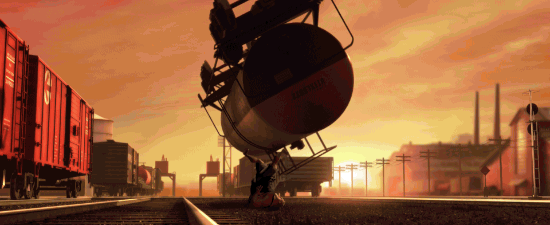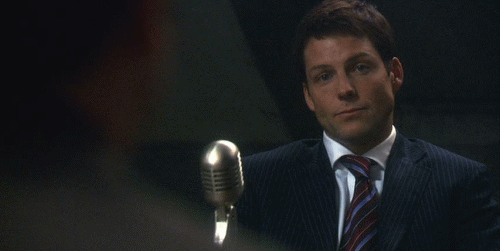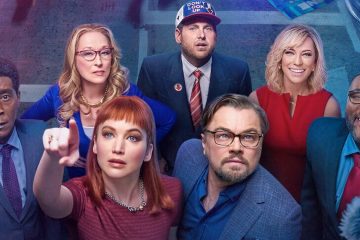Last week, I picked up a copy of One of The Greatest Fantasy Novels of All-Time.
It has a rating of 4.1 on Goodreads, 4.5 on Amazon, and a legion of rabid fans around the world who can quote you the intricacies of its plot faster than I can remember my roommate’s birthday. (That’s why I’m not mentioning it by name; I don’t need an army of true believers in my mentions rabidly defending their favorite story evarrrrr.)
Despite the book’s positive pedigree… I couldn’t even make it through the prologue.
In fact, I knew I was in trouble right from the opening sentence.
Why?
Well, first, let me be real clear about something: I’m extremely picky when it comes to choosing which books are worth my time. If something doesn’t grip me from the get-go, I’m not going to stick with it.
Unlike a movie, where I’m willing to sit in a theater and let the director ease me into their world over time, I need a book or a web article to hook me from page one. (That’s actually why I created my Better Storytelling for Business course–because so many brands are so bad at being interesting.)
And yes, I also admit that I’m not a die-hard fantasy fan. I’m not looking for a different flavor of a genre I already love. I’m just looking for a story that works as a story, not as a differentiation of a type of story.
So, let me explain three elements that I believe any good story needs, regardless of genre, in order to hook readers from the outset. Then we’ll look at three other details you can definitely kill and get away with. Their absence will even improve your story by default.
3 Elements of a Strong Story Hook

A Character the Reader Wants to Spend Time With
It doesn’t matter how intricate your plot is.
It doesn’t matter how far back your mythology goes.
It doesn’t matter how many sides your love triangle (or love tetrahedron) has.
If we don’t want to see what your characters will do next, we won’t keep reading.
This does not mean your characters have to be likable.
It doesn’t even mean they have to be relatable.
They just need to be interesting.
What makes a character interesting? Conflict and/or unpredictability.
If someone clearly wants something that’s bad for her… that’s interesting.
If someone is kind to some people and cruel to others… that’s interesting.
If someone excels in one area but avoids another… that’s interesting.
Why is this interesting? Two reasons.
First, it creates the opportunity for that character to change. (Whether or not we want them to change is a different issue, which we’ll cover in a second.)
And second, readers will start to form expectations about these characters based on what this story is setting up and based on every other story they’ve read in their lives. And once they have these expectations, they’re more likely to keep reading because they want to find out if their presumptions are true, or if you’ve found a way to subvert and surprise them.
A Conflict the Reader Has an Opinion About
You’ve probably heard the term “stakes” related to conflict since forever.
But the scale of the stakes doesn’t matter as much as the clarity of the stakes.
In other words, a story about a hero trying to prevent the end of the world isn’t inherently more interesting than a story about a hero trying to make it to a job interview on time.
For example, take The Incredibles.


We start that story seeing how happy Bob Parr is as a superhero… and then we see how unfulfilled he is living the “American dream” of a wife, 2.5 kids, and a day job… but we also understand that he can’t have both (can he?), so we already start to form an opinion about which outcome we’d like to see happen.
The catch to establishing the stakes for any story is that we only really care about a story once we have enough information to form an opinion about what we hope will happen. (For more about this point, see why the editing of Star Wars was so important.)
That’s why it’s so hard to form an opinion about, say, a hero trying to save the world.
For one thing, we’ve seen this story a thousand times. We know who we’re supposed to root for, and we know that the world ending is probably a bad thing. But this kind of lazy default motivation gives writers an excuse to write bland characters and hokey plotlines, because they presume the trope of “uh oh, the world is in danger” automatically means the reader will care about every word they write.
Nope.
Try harder by getting more personal.
In reality, democracy doesn’t collapse just because one idiot gets elected, so writing a story where those are the stakes is a stretch. But those big-picture changes do have intimate consequences for individuals.
In Battlestar Galactica, the future of humanity is at stake, but the show often zooms in on the interpersonal conflicts of individual soldiers and politicians to show how system-wide choices affect the lives of the people who live within that system.

Lee Adama doesn’t have time for your tropes.
In other words: if you want us to care about the world ending, show us a family whose wellbeing is in jeopardy and we’ll care about their world by extension… but, ironically, that won’t necessarily work in reverse.
To generate the strongest emotional attachment in a reader, going smaller is often better.
An Uncertainty that May Recontextualize Everything
What saves even the most predictable “seen it before” plot?
Add one “grey area” detail we’ve never seen before.
Sure, the world may end… and sure, the hero will probably save the day… but what if the hero is actually a clone of the villain?
Well, now we have an uncertainty: how much of the hero’s behavior is free will and how much does he owe to his cloned DNA?
Or, sure, the star-crossed lovers may be destined to meet and fall for each other… but what if we actually really like the relationship that one of them is already in?
Well, now we have an uncertainty: we’re not sure if we want a good thing to end, and we’re not sure if the genre trope trumps our instincts that the characters who started the story together are actually a better match.
These uncertainties — whether they’re plot based or genre-subverting — are your secret ingredient that helps you turn even the safest concept into something unpredictable, which can keep us turning pages despite our own instincts.
So… what are the aspects of a story that make us (okay, me) close a book in agony?
Here we go…
3 Momentum-Killing Story Elements to Avoid

“Oh good, only 400 more pages of this prologue to go…”
Excessive Detail and Description
Kevin Thronegood, the tall, raven-haired, grey-eyed, impressively muscular barbarian with a dragon-shaped scar on his face, sauntered angrily over the fire-scorched earth bordering either side of the ancient marble road that led to the fabled golden city of Dasdarian and sheathed his ebony firesword whose ivory pommel glowed with the azure power of Balthzarian, the legendary chimera who died at the business end of the blessed blade swung by Kevin’s equally broad-shouldered and smouldering ancestor Bjorn Thronebetter, renowned king of the Lanky Mountain Gnomes who once ruled the Sulfur Summit with benevolent fists of stone.
Backstory in Every Bite
Jagen considered asking the king for mercy, but then she recalled the long-running feud between her family and his, which began 2000 years ago when their tribes first came to battle at the mouth of the Spyxtykyx River to vie for control of these great Southlands, and the generations of blood that have been spilled betwixt them ever since, most recently when her great-grandfather Hellbjern beheaded the king’s great-uncle Jerst in the dawning light of Kellsday upon the mountaintop of Swerd, at the apex of the skirmish that turned the tide in the Seventh War of the Riverwheel, and she knew that his long-simmering hatred of her people could only be matched by his self-loathing desire for her stepsister Fineldra, whom he hated himself for finding irresistible, and so she said nothing.
Jargon for Jargon’s Sake
Twygon fired up his bronst, a kind of mechanized wagon, and tightened the reins of his schlerbs, which are horselike beasts whose noses more closely resemble pigs, and took to the hwinst, which is what the Skylians call roads, on his way to the calliask, the region’s term for a capital, where he sought an audience with Queen Ai’aerialsh per don Q’uarkiall ver Shab-a’a-Sha’an, sixth of her kind in the Quinch of Haust, to inquire about recompense for the untimely death of his trusty quert (a smallish dog-like creature), Borp, in the ongoing Clash of the Thermshills, in which Twygon’s dront [son] Twylor was still at war.
Okay, So How Do You Avoid These Issues?
Details aren’t bad.
Backstory isn’t bad.
(Some) world-specific jargon isn’t bad.
What’s bad is when those elements overwhelm a reader and clutter the story’s flow.
To avoid that, deliver these details in a way that doesn’t call attention to them.
Sure, we may need to know about Kevin Thronegood’s family history, what makes his sword so special, the wars his ancestors won, the geography of the region, where he’s headed, and why… eventually.
But we probably don’t need to know it all at once.
Instead, give us just as much as we need to know in order to get the plot rolling, and then reveal the rest of the details over time through dialogue or other natural means.
Kevin’s ancestor was a king? That could be revealed by a witch, or by spoken rumors, or by another character translating one of Kevin’s many tattoos. We don’t need to be informed of it by exposition — and definitely not on page one, unless that detail is immediately critical to a choice Kevin is about to make.
Jagen’s family has been at war with the king’s for centuries? We can figure that out by noticing that the place names in the region vary between her last name and his. Sure, you can spell it out more concretely in dialogue or exposition elsewhere, but displaying it through the lived-in details of your story’s world plants that seed in our heads well beforehand.
Twygon’s bronst breaks down on the hwinst because his schlerbs ran out of dwik (water)?
Maybe just… you know… call it water.
If your story works even without any fictional terms, we’ll still think you’re a linguistic genius.
In fact, we may even love you for it.
Shmortz [“Promise”].
If You Liked This Post
… then you may also enjoy this post about where season one of Marvel’s Defenders went wrong, or this post about easy tips to improve your writing for online audiences.


0 Comments